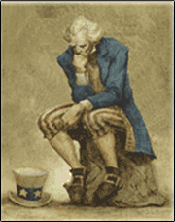
(function(d, s, id) { var js, fjs = d.getElementsByTagName(s)[0]; if (d.getElementById(id)) return; js = d.createElement(s); js.id = id; js.src = “https://connect.facebook.net/en_US/sdk.js#xfbml=1&version=v3.0”; fjs.parentNode.insertBefore(js, fjs); }(document, ‘script’, ‘facebook-jssdk’)); –>
–>
December 23, 2023
When conflicts in the Middle East exposed the cracks in the foundation of the United States’ higher learning institutions, many college presidents tried to appeal to American democratic values to seal the gaps. The trouble is, it’s been so long since universities upheld democracy that most college presidents don’t even recognize it anymore.
‘); googletag.cmd.push(function () { googletag.display(‘div-gpt-ad-1609268089992-0’); }); document.write(”); googletag.cmd.push(function() { googletag.pubads().addEventListener(‘slotRenderEnded’, function(event) { if (event.slot.getSlotElementId() == “div-hre-Americanthinker—New-3028”) { googletag.display(“div-hre-Americanthinker—New-3028”); } }); }); }
After a disastrous congressional hearing on anti-Semitism on December 5, University of Pennsylvania’s president Liz Magill has been sacked for attempting to excuse violent anti-Semitic threats on Penn’s campus. Harvard’s President Claudine Gay is also facing calls to resign following a federal investigation into Harvard University for possible civil-rights violations. Harvard University, however, has issued a statement in support of her leadership despite the fallout over her morally inept testimony before Congress. MIT appears to have similarly stood by its President Sally Kornbluth.
These are not the only renowned higher learning institutions accused of turning a blind eye to allegations of anti-Semitic harassment. Columbia University, Cornell University, and Wellesley College are among other leading universities federal officials have earmarked as potential breeding grounds for anti-Semitism.
The sudden spread in anti-Semitism across college campuses comes as a surprise to many (though not all). It’s easier to trace the source of this movement through an examination of the philosophical traditions that form the foundation of higher learning in America.
‘); googletag.cmd.push(function () { googletag.display(‘div-gpt-ad-1609270365559-0’); }); document.write(”); googletag.cmd.push(function() { googletag.pubads().addEventListener(‘slotRenderEnded’, function(event) { if (event.slot.getSlotElementId() == “div-hre-Americanthinker—New-3035”) { googletag.display(“div-hre-Americanthinker—New-3035”); } }); }); }
The insanity prevalent across college campuses can be traced back to the neo-Marxist “critical” school of thought and postmodernist notions of power, knowledge, and culture. These theories emphasize the dominant power structures operating in society and their role in maintaining the status quo. One such narrative that has taken hold of academia is the oppressor-oppressed binary.
According to this narrative, the world is divided into two classes by group: the oppressors and the oppressed. The oppressed can do no wrong, while the “oppressors” are the ultimate perpetrators of injustice — evil incarnate. In the case of Israel, Israel is your standard “settler colonial state,” while the Palestinian people — considered occupied by most of the international community — are the ultimate victims, relegated to the bottom of the oppression hierarchy by the colonizing forces.
 The problem with this binary view of the world is that it’s too simple. People are rarely ever just the oppressors or the oppressed — power isn’t one-directional. Even Michel Foucault knew that, and he’s the very philosopher who inspired postcolonial scholars to develop these neo-Marxist postmodern theories in the first place. Foucault rejected the Marxist notion of power as the domination of one class (in this case cultural identity) over another. “Power is everywhere and comes from everywhere,” the French philosopher famously said in his theory of power in 1976. “It is neither an agency nor a structure. It is a kind of ‘metapower’ or ‘regime of truth’ that pervades society, and which is constant flux and negotiation.”
The problem with this binary view of the world is that it’s too simple. People are rarely ever just the oppressors or the oppressed — power isn’t one-directional. Even Michel Foucault knew that, and he’s the very philosopher who inspired postcolonial scholars to develop these neo-Marxist postmodern theories in the first place. Foucault rejected the Marxist notion of power as the domination of one class (in this case cultural identity) over another. “Power is everywhere and comes from everywhere,” the French philosopher famously said in his theory of power in 1976. “It is neither an agency nor a structure. It is a kind of ‘metapower’ or ‘regime of truth’ that pervades society, and which is constant flux and negotiation.”
Under Foucault’s original definition, humans are therefore both subject to and wielders of power.
This is important because unlike the faux postmodernists of today who would have you believe that power is centralized in a particular agent or held by one group or groups of people at all times (think “White” people), Foucault thought of power as an interactive force constantly being dispersed throughout society — never static and always in flux.
Foucault’s philosophy was much more complex than your standard social-justice warrior would like to admit. Unfortunately, whatever Foucault truly thought of power does not matter to the ideologues twisting his words for some skewed version of “justice.” A flawed version of Foucault’s notion of power has permeated America’s institutions. Hence the modern-day madness and the new market for the oldest and most enduring social pathology, what historian Robert Wistrich coins “the longest hatred.”
‘); googletag.cmd.push(function () { googletag.display(‘div-gpt-ad-1609268078422-0’); }); document.write(”); googletag.cmd.push(function() { googletag.pubads().addEventListener(‘slotRenderEnded’, function(event) { if (event.slot.getSlotElementId() == “div-hre-Americanthinker—New-3027”) { googletag.display(“div-hre-Americanthinker—New-3027”); } }); }); } if (publir_show_ads) { document.write(“
Under this flawed popular philosophy, everything is fair game when it is done in the name of anti-colonial resistance. Yes, even killing babies. Remember, the oppressed, by definition, are innocent. And the oppressors, by definition, are evil, deserving of whatever ill befalls them. The Jews have found themselves on the wrong side of the victim hierarchy.
Anti-Semitism has been allowed to flourish because the modern-day campus has capitulated to a progressive Left keen on indoctrinating young thinkers with a reductive ideology. This explains the generational shift when it comes to support for Israel among America’s youth.
Less than 80 years from the end of World War II, the world’s “longest hatred” is resurging with renewed force, finding a welcome home in our most cherished institutions and threatening to disrupt the very foundations of tolerance and diversity that we strived so hard to create. The ideas motivating Pro-Hamas demonstrations have no place in our society and should be vehemently condemned and uprooted from our institutions.
The Biden administration’s investigation of Harvard is a welcome start — as is this month’s congressional hearing. Colleges across America should sit up and pay attention.
Nathalie Voit is a Young Voices contributor and an alumni of the University of Florida. Her writing regularly appears on C3 Solutions.
Image: Montecruz Foto
<!–
–>
<!– if(page_width_onload <= 479) { document.write("
“); googletag.cmd.push(function() { googletag.display(‘div-gpt-ad-1345489840937-4’); }); } –> If you experience technical problems, please write to [email protected]
FOLLOW US ON
<!–
–>
<!– _qoptions={ qacct:”p-9bKF-NgTuSFM6″ }; ![]() –> <!—-> <!– var addthis_share = { email_template: “new_template” } –>
–> <!—-> <!– var addthis_share = { email_template: “new_template” } –>






